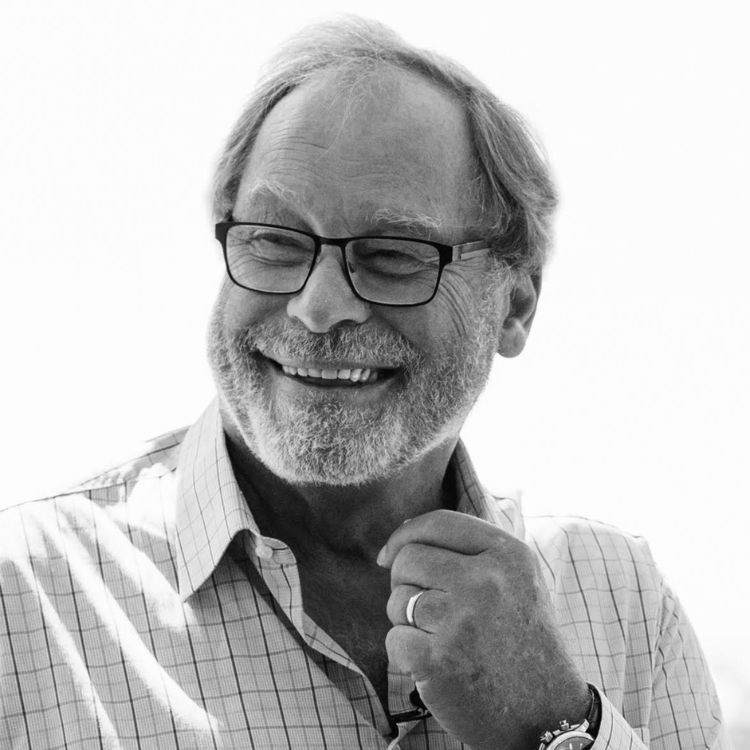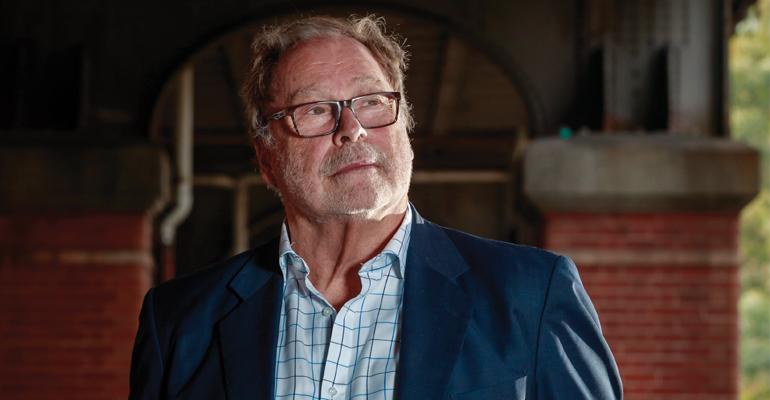This article was originally published by Sarah Morgan as “The Godfather of Recruitment” in The Brief, the magazine of the RCSA.
They say it’s not what you know, but who you know that matters and when it comes to the biggest influencers in the recruitment industry, there are few better known and respected than Geoff Slade.
In fact, he is so well known and so influential, there might as well be a saying “all roads lead to Geoff” such is the broad reach of his connections.
And, when you are affectionately known throughout the industry as “the godfather of recruitment”, it goes without saying that your opinion on the industry as a whole, as well as the mistakes of the past and opportunities and threats for the future, are ones worth listening to – or reading about.
It’s been more than 50 years since Geoff began his career in recruitment and while an awful lot has changed in that time, his successes and widespread influence are a testament to his ability to play to his strengths, adapt and make key decisions based on merits and not just the traditional “rules”.
Geoff remains grounded about his achievements and influence during his five decades in the industry – including being the first president of RCSA – acknowledging the support and guidance he has received as his career has evolved, as well as the abilities of the people he employed.
“I always liked to think outside the square,” he says. “I liked to employ not just people who have worked in the industry.
“In fact, some of the most notable people I have employed had never worked in recruitment before.
“Four standouts were Andrew Banks, Louise Craw, Peter Tanner and Nanette Carroll, none of whom had a background in recruitment.
“Louise managed our office support business for over 25 years and was a rock on which the company could rely. She is now on our board. Peter moved on after six years to found Tanner Menzies.
“Nanette worked for me for 10 years and ended up being awarded the 1996 Queensland & Australian Telstra Business Woman of the Year. Andrew’s background is of course well known.
“It’s satisfying to know that not only people who worked in our industry, but people we have influenced and found jobs for have gone on to bigger and better things than we could have dreamed.”
Geoff admits he may also be known in the industry as a “tough and unreasonable” operator, acknowledging there have been many changes in leadership styles from his formative years in the 1960s.
“I would like to think that I’m regarded as hard but fair,” he says.
“Recruitment is enormously satisfying, but it’s bloody hard work.
“It’s not an exact science and demands focus and self-management and what I call purposeful productivity, strong listening and comprehension skills. When I talk of comprehension, I’m talking about what is now tested as verbal and inductive reasoning.
“A good recruiter can probe and follow questions to the end with both clients and candidates. A good recruiter can dig beneath the surface.
“One of the biggest issues I have with the current day recruiters is they think they can build relationships by phone or email. They don’t get out to meet and know their customer.
“I think good recruiters build relationship with a client – like getting married. You have to be able to talk to them about other things than where is my next assignment coming from.”
HOW IT ALL BEGAN
Geoff started out in accounting before moving into human resources in 1964 and then, finally, recruitment in 1967, but it could all have been so different if his dream of being a VFL footballer had been realised.
Despite being told by Melbourne Football Club that he wasn’t quite good enough, three years after he moved to the city from the country to pursue a football career, Geoff feels he “really lucked out”, albeit in a slightly unconventional way, after being thrown in at the deep end twice, and for two very different reasons.
“I returned to the country at a time a major refinery was being built on the western portside of the Mornington Peninsula and I applied for a job with the major construction company,” he says.
“I was lucky to be offered a job as assistant to the HR manager and it provided a very quick learning curve. He turned out to have a major health project and I was his only offsider, so I was left with a lot of responsibility.
“It ended up providing great experience for me: there were 1500 men on the site and there was a stop work or strike every day for three years. I had to deal with unions pretty much every day in a very volatile and aggressive environment, which taught me to try to use common sense and to solve problems.
“At the end of the project I was one only of two people offered a job at head office, and the offer came with a promise for me to be the HR manager on the next project.”
But, despite the promise, and because the company won no new tenders Geoff ended up doing everything for the business except HR. Looking for an alternative, he applied for a job through the biggest executive recruitment firm in Melbourne at the time.
“I was told I was too young for a job they were recruiting for, but they wanted to offer me a job as a consultant,” Geoff says. “The owner gave me his word that the job was mine if I wanted it. I just had to tell him when he got back from an overseas trip.
“Four days later, he was unfortunately killed in a car accident.”
As a country boy with “no idea what to do next”, Geoff took note of the fact that he took the most enjoyment out of the recruitment side of his HR role. So he approached his parents to ask for a loan so he could start up his own employment agency.
“Dad said ‘what is an employment agency’?” Geoff recalls. “I told him what I thought it was, and he said he wouldn’t lend the money to me even if he had it. Mum was softhearted though – she had $300 in bank and said she would lend it to me as long as I paid it back.
“So I borrowed the money and rented a space, knowing I had to make a placement in the first two weeks so I could pay the rent.”
So began the 21-year life of Slade Consulting Group before its sale in 1988 to British multinational Blue Arrow.
For the first seven years, Geoff says he lived “on the smell of an oily rag” before he turned any meaningful profit, which came about in 1974 after he took back management of the recruitment agency after a stint working in London working with executives looking to migrate to Australia on the £10 Pom scheme.
After a few successful years, around 1981, Geoff decided to shake up Slade Consulting Group, which saw him focus more on management and less on day-to-day recruitment.
“I went out and hired three young people all in their mid-20s: Andrew Banks, Richard Weston and Greg Fish,” Geoff says.
“We sat down and did a SWOT analysis of the industry – how it would run and how we could grow the business quickly.
“At the time, Chandler McLeod and PA Consulting were both huge in terms of executive recruitment. We researched and discovered they were taking 10-12 weeks to fill jobs. That’s a very expensive situation for clients.
“For a company, that could be very inefficient and very expensive, so we went to their clients and said ‘we believe we can do as good a job as either of those companies; we believe it’s costing you a lot of money to have jobs vacant for so long. If we can’t do it within four to six weeks – we’ll do it for free’.”
That approach helped to guide Slade Consulting Group to a turnover of $10 million by 1984.
By 1987, it was the biggest executive recruitment company in Australia, with offices in five cities, as well as two in New Zealand, with a staff of 135.
At the end of that year, Geoff was approached by a representative of Blue Arrow – at the time the biggest recruitment company in the UK – who said he was “prepared to make me an offer too good to refuse”.
“He told me to think of a number to see if he would be prepared to meet it,” Geoff says.
Needless to say, the offer was good and Geoff sold the business, but it didn’t work out as had been promised.
Geoff felt compromised by what Blue Arrow was asking him to do and left the company and caught up with his long term client – Pacific Dunlop – which had made up 40 per cent of Slade Group’s business.
Geoff says that Pacific Dunlop has been “very influential in my success”, thanks to a long-term relationship spanning 20 years, but without some creative thinking on behalf of its then managing director, Philip Brass, he might have found himself “watching grass grow on the farm for the next year or two” as he served the term of a two-year non-compete clause.
“I went to Philip to tell him I could no longer be a consultant to him, nor could I consult in any way, shape or form,” Geoff says. “He told me he had a solution and offered me the role of HR Director for Pacific Dunlop.
“I said I would do it, but for two years only and provided I did a good job asked him if he would offer me a preferred supplier agreement when I went back to business.
“When I returned, it became the first preferred supplier agreement done in Australia.”
Geoff’s return to consulting came with Lyncroft Consulting Group, which was named after his country property, but in 1992 it changed back to Slade Group as Blue Arrow sold out of Australia.
Slade Group quickly moved to the forefront of recruitment in Australia, where it remains today.
THE BIRTH OF RCSA
In 1998, Geoff and others identified that it was “industry critical” to create a national industry body for the sector.
“There were a lot of people very unhappy as to how it was all going, with the NAPC and IPC being run through state bodies, because they were independent and there was no cohesion to move things forward,” he says.
“So we got together with senior members of the industry and agreed this had to change and we formed RCSA to represent Australia and later New Zealand. I’m really proud of the history and my involvement in RCSA.
“One of things I really love about the industry is its ability to have positive impact on people’s lives. It’s now very rewarding to see it evolve into the association it is today.”
Continue reading on the RCSA news website…

Geoff Slade has worked at the forefront of the Recruitment industry for 50 years. He is the Executive Chairman of Slade Group and was awarded a Centenary Medal for services to the industry.

